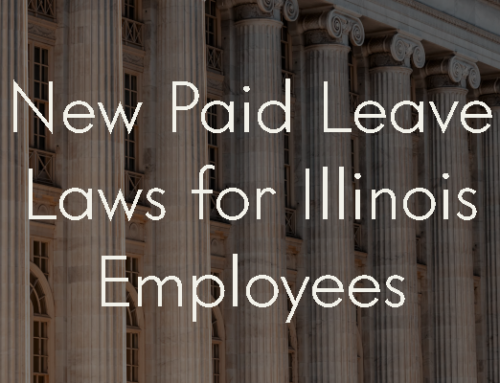For small and large employers alike, taking on unpaid interns can be a great way to teach someone your trade, potentially find future employees, and get a fresh set of eyes to look at things around the office. However, if you are thinking about taking on unpaid interns, there are several things you should know first. Unpaid interns are still entitled to certain rights, and there are a few things you need to make sure you are doing so that you can legally classify the interns as “unpaid”.
The Court Case
The court case Glatt v. Fox Searchlight Pictures involves a dispute between Fox and some of their former interns, including Glatt. Glatt accused Fox of violating several labor laws by classifying the interns as “unpaid interns”. The case addresses several legal issues, such as standing and time barred-claims, but ultimately revolves around whether Glatt and the other interns should have been classified as “paid employees” under the Fair Labor Standards Act.
The department of labor lays out specific criteria that must be met for an intern to be legally considered an “unpaid intern”:
- The internship is similar to training that would be given in an educational environment (even though it also involves actual operation of the facilities);
- The experience is beneficial to the intern;
- The intern does not replace or displace regular employees, but instead works under their close supervision;
- The employer does not receive immediate advantage from the intern (their work may actually be impeded);
- The intern is not necessarily entitled to a job at the end of the internship; and
- The employer and intern understand that the internship is unpaid.
For a discussion of each of these criteria in more detail, you can visit the Department of Labor’s Internship Programs Fact Sheet.
The point of this restriction on unpaid interns is to avoid employers taking advantage of “unpaid interns” and using them to replace paid employees. Because the court in Glatt v. Fox Searchlight Pictures found that some of these criteria were not met, it concluded that the unpaid interns should have been classified as paid employees. This means that the employers will be liable for wages for the time that Glatt and other plaintiffs worked for them.
Implications
There are a few implications arising from this court decision.
First, it is important to note that this is a New York District Court. The decision is not binding on Illinois courts or courts in any other state. The federal labor laws are, however. And if one court interprets the federal law this way, it might sway another court to do so as well.
Second, it is very important to be careful when taking on unpaid interns. You must make sure you are following all of the requirements laid out by the department of labor, or you could be liable for back-wages for the hours that the intern worked (including possible employment benefits, fines, and so on). Taking on unpaid interns can be a very rewarding experience, and can even help you in the long run by saving time training the intern for a future employment position. However, it has to be rewarding for the intern as well.
A Few General Dos and Don’ts
Do make sure that the intern knows that the position is unpaid. Wherever you advertise the internship, also note that it is unpaid. Make sure that the intern signs a waiver acknowledging that the internship is unpaid.
Do can have them sign another acknowledgement clearly stating that there is no guarantee for a paid job at the end of the internship. Don’t make it sound like this internship is a trial basis for permanent employment either, because that can get you in as much trouble. Let the intern know that the internship has a definite period. This does not mean that the intern cannot apply to your business later, or that you cannot give them preference in this hiring process.
Don’t fire any employees or use unpaid interns to fill a recent employee vacancy. If it looks like you are trying to replace employees with interns, it could mean trouble.
Do be sure to teach the intern. Train them in actual practice and work closely with them or have an employee work closely with them to ensure that they are (or should be) learning something substantial during the internship.
Don’t assign interns menial tasks (at least not frequently) that benefit you but do not teach the intern anything. Having them staple a few papers most likely won’t ruin your chances of calling them an unpaid intern, but sending them to reorganize your filing cabinets for a few weeks could.
For more information on what you can do specifically to ensure you are complying with the Department of Labor standards, you can look at the explanations provided on their Internship Programs Fact Sheet.
Still Have Questions?
If you still have questions about employees, unpaid interns, or any other employment issues, talking to a lawyer might be what you need. Contact G & G Law, LLC today to schedule a free initial consultation.




